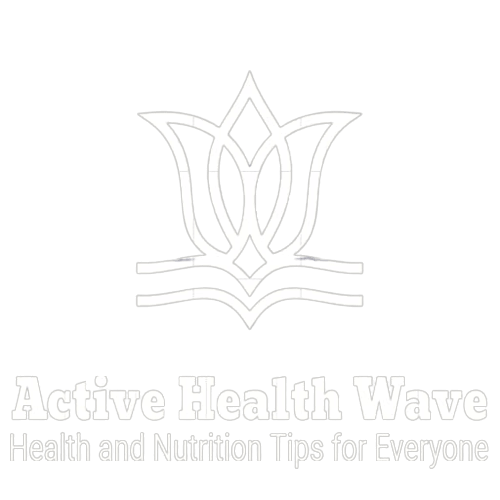Fueling Your Endurance: The Ultimate Guide to an Athlete’s Diet As an endurance athlete, you […]
Fueling Your Endurance: The Ultimate Guide to an Athlete’s Diet
As an endurance athlete, you know that nutrition plays a vital role in optimizing your performance. The right diet with the right foods and implementation can provide the energy and nutrients your body needs to sustain intense workouts and long-distance events. In what follows, we will explore the ideal foods for an endurance athlete diet and how to implement them for maximum benefit, before and after your workout. Remember to watch above video, for more information.
The Consequences of Poor Nutrition
When it comes to endurance sports, inadequate nutrition can have serious consequences. Without the proper fuel, your body may struggle to maintain energy levels, leading to fatigue and decreased performance. Insufficient nutrient intake can also compromise your immune system, making you more susceptible to illness and injury. Moreover, poor nutrition can impede recovery, hindering your ability to bounce back after grueling workouts.
Advantages of an Endurance Athlete Diet
Adopting a well-rounded endurance athlete diet can provide numerous advantages that enhance both your performance and overall wellness. Here are some key benefits:
Optimal Energy Levels: By consuming the right balance of carbohydrates, proteins, and fats, you can ensure that your body has a steady supply of fuel to power through long training sessions and races.
Improved Endurance: A diet rich in complex carbohydrates will enable your muscles to store glycogen more effectively. This glycogen serves as a primary source of energy during endurance activities, allowing you to go the distance.
Enhanced Recovery: Proper nutrition aids in the repair and rebuilding of muscles after strenuous exercise. Consuming adequate protein after workouts supports muscle growth and repair, reducing the risk of overuse injuries.
Strong Immune System: A balanced diet supports immune function, helping to ward off illnesses that can disrupt your training schedule and hinder your progress.
Healthy Body Composition: An endurance athlete diet focuses on nutrient-dense foods, which can promote a lean body composition and optimize power-to-weight ratio, giving you an edge in your sport.
Key Components of an Endurance Athlete Diet
Now that we understand the advantages of an athlete’s diet, let’s delve into the key components that should be part of every endurance athlete’s eating plan:
Carbohydrates: These are the preferred source of fuel for endurance activities. Include whole grains, fruits, vegetables, and legumes in your meals to ensure an adequate carbohydrate intake.
Proteins: Proteins are essential for muscle repair and growth. Incorporate lean sources such as poultry, fish, beans, and tofu into your diet to meet your protein requirements.
Healthy Fats: Fats are crucial for endurance athletes as they provide long-lasting energy. Focus on consuming unsaturated fats found in nuts, avocados, and olive oil while limiting saturated fats from processed foods.
Hydration: Adequate hydration is critical for optimal performance. Drink water regularly throughout the day and remember to replenish fluids during workouts to replace what is lost through sweat.
Implementing Your Endurance Athlete Diet
Now that you know what constitutes an ideal endurance athlete diet, it’s time to put it into action:
Meal Planning: Plan your meals and snacks in advance to ensure you have a balanced and nutritious food selection readily available. This will prevent hasty food choices that may not align with your goals.
Pre-Workout Fuel: About 2-3 hours before a training session or competition, consume a meal that includes carbohydrates for sustained energy. Avoid high-fiber and high-fat foods that can cause gastrointestinal discomfort.
During Exercise Fuel: For workouts lasting longer than an hour, consume easily digestible carbohydrates in the form of sports drinks or gels to maintain energy levels.
Post-Workout Recovery: Within 30 minutes of completing your workout, consume a snack or meal with both carbohydrates and protein to replenish glycogen stores and support muscle repair.
Meal Frequency: Eat smaller, balanced meals every 3-4 hours throughout the day to ensure a constant supply of nutrients and maintain stable blood sugar levels.
Who Should Follow an Endurance Athlete Diet?
An endurance athlete diet is beneficial for individuals participating in activities such as long-distance running, cycling, swimming, triathlons, and marathons. This eating plan is designed to support the high energy demands and prolonged exertion associated with endurance sports.
Whether you are a seasoned athlete or aspiring to become one, fueling your body with the right nutrients is essential for achieving peak performance. By adopting an endurance athlete diet and implementing its principles, you can optimize your training, enhance recovery, and elevate your overall wellness. Begin incorporating these nutritious choices into your meals today and experience the incredible benefits they bring to your athletic journey.













